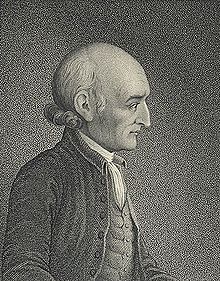George Wythe signed the Declaration of Independence, served as a delegate to the Constitutional Convention, and argued in favor of ratification by his home state of Virginia. However, his legal mind and mentorship of Thomas Jefferson, John Marshall, and Henry Clay are widely regarded as his most significant contributions to the country.
Early Career
Prior to the American Revolution, Wythe had a distinguished legal and legislative career, serving in Virginia’s House of Burgesses — the first legislative assembly in the American colonies — for nearly 20 years. A strong supporter of the Revolution, Wythe volunteered for the army. Instead, he was appointed to the Continental Congress, where he signed the Declaration of Independence.
In 1778, Wythe was appointed to Virginia’s newly formed high court of chancery. He served for 28 years and is largely responsible for forming the state’s early jurisprudence. Wythe also had a love for teaching the law, chairing the country’s first official college-level law school at William and Mary College. His students included future Supreme Court Chief Justice John Marshall and future U.S. President James Monroe.
Constitutional Convention
At the Constitutional Convention, Wythe was appointed to be the chairman of the Committee of Rules. Fellow delegate William Pierce considered Wythe “one of the most learned legal Characters of the present age.” He further wrote: “No Man understands the history of Government better than Mr. Wythe, nor anyone who understands the fluctuating conditions to which all societies are liable better than he does, yet from his too favorable opinion of Men, he is no great politician.”
Despite his vast understanding of the law, Wythe left the Convention on June 2 and never returned. He officially resigned as delegate two weeks later to stay home and care for his ailing wife. Although he did not have the opportunity to sign the Constitution, Wythe later served as a delegate to the Virginia ratifying convention. He joined fellow Federalists, including James Madison, is supporting ratification. As chair of the Committee of the Whole, he offered the final resolution for ratification.









